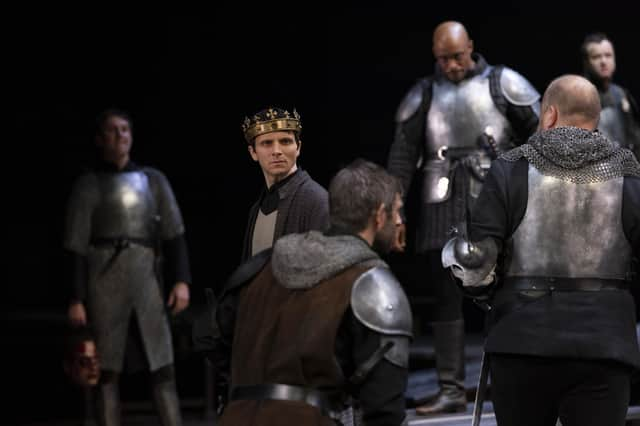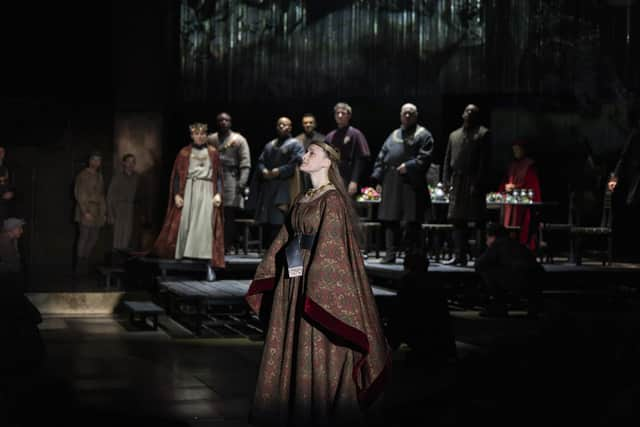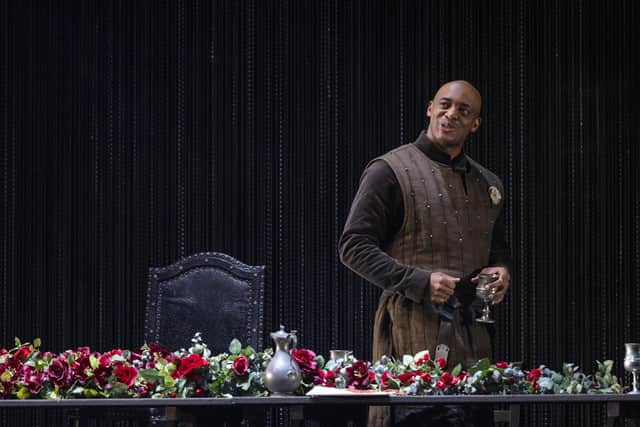REVIEW: Ambition pays off in RSC's monumental Henry VI double-bill


It sits on the stage throughout six hours of theatre: a big chair that looks rather tired and uncomfortable. It is almost always empty and ignored. On a man’s head is a band of metal.
Experience makes these objects despised by the one who possesses them. Ambition transfigures them in the minds of those who covet them: they become throne and crown. Men fight for them on a bleak patch of rubble.
Advertisement
Hide AdAdvertisement
Hide AdEven if there is a kind of epic pointless to it all, these two large-scale shows (the first has a cast of 118) have much to recommend them. They are not flawless but they constitute a tremendous achievement.


They share a director (Owen Horsley), a look and many characters, but they are quite different. Rebellion – the RSC’s renaming of Henry VI pt 2 – is the more intriguing. Mark Quartley is compelling as the unwilling monarch, a king since a baby. He would be more suited to a monastery than a palace, but his dreaminess coexists with a sense of realism and honesty. He is good and sad.
For Henry, rebellion is everywhere: in his country, in his court, in himself. He knows he needs to grow but he feels he wants to shrink. Under his ineffectual rule have festered rivalries that would tear the country apart. His wife, Margaret of Anjou, is far more ambitious for him than he is for himself. Meanwhile, the everyday people of England – played by non-professional actors from across the country – are finding themselves stirred. Aaron Sidwell plays chief rabble-rouser Jack Cade like a rather earthier Russell Brand; his scenes have a riotous energy.
The strengths and weaknesses of the play are apparent. It is a straightforward and well-paced story, written as clearly as Shakespeare ever wrote, and the cast speak his words with impressive crispness and expression. But while the characters’ inner worlds are explored with shade and nuance, the class struggle is depicted with a disappointing sense of caricature.
Advertisement
Hide AdAdvertisement
Hide AdWars of the Roses – Henry VI pt 3 – is louder and brasher. Unsurprisingly, there is a lot of fighting. This is done well if a little wearyingly: scene after scene begins with bangs, crashes and shouts. But the real star here is Arthur Hughes, who plays Richard; we will see him as Richard III later this year and the prospect is thrilling. He is a deeply chilling charmer, and is so effective that it is tempting to see these two theatrical feasts as mere hors d'oeuvres.


Both productions make extensive use of large-scale projections. The results are mixed. Some footage is are pre-recorded; this is often striking and beautiful. Some is filmed live by a camera on stage; this is less successful, owing in part to a slight lag, and can feel gratuitous, gimmicky and distracting.
Overall, however, Horsley and his vast team deserve congratulations. This is hugely ambitious theatre – and, in this instance, ambition is good.
Henry VI: Rebelion runs until May 28. Wars of the Roses runs until June 4. Visit rsc.org.uk or call 01789 331111 to book.